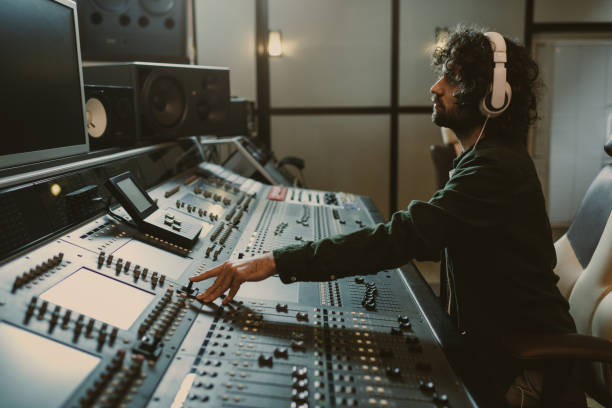Live sound engineering is an enticing and lucrative career to pursue. However, the pathway to becoming a live sound engineer is not a walk in the park. Like other industries, live sound engineers are expected to be skilled and creative to thrive in this competitive sector. In addition, live sound engineers require a robust professional network to break into the industry. Otherwise, a skilled live sound engineer must approach local sound companies or brands for a job. They can also expect to work as an unpaid intern until they gain substantial experience to get opportunities without networking.
The most proven way to a live sound engineering career is by pursuing a Live Sound course from a reputable music school. Attending a top music school not only prepares you to become an expert in working with industry-standard audio software and equipment to create the perfect sound for live events but also provides you with the support to break into the industry successfully.
In case the idea of getting into a music school appeal to you, the chances are high that you must wonder about the qualifications needed to become a live sound engineer. Read on to explore what it takes to become a live sound engineer.
Qualifications to become a live sound engineer
An individual requires a wide range of skills and knowledge to succeed in becoming a live sound engineer. Studying a live sound course equips students with the acumen to record live concerts professionally and other events, extend their reach, and excel in the world of sound and music.
Although no formal education is required to become a live sound engineer, earning a certificate or degree is an asset when seeking employment. Industry experts recommend that live sound engineers with formal education better understand planning and designing public addresses/audio systems in various environments. In addition, graduates from music school can also plan a concert or music festival. Moreover, studying live sound allows you to explore the worlds of contracts and festival planning, which can help you increase the scope of your professional options.
Demand for live sound engineers
A live sound engineering career is enriching and provides various opportunities to work with different musicians and bands. According to the US Bureau of Labor Statistics, employment in sound engineering will grow by 12% over the decade. A live sound engineer can also specialize in live events, studio, front of the house, broadcast, advertising, and foldback to gain an edge over competitors.
How much does a live sound engineer make in Canada?
As live sound engineering is a lucrative career path, live engineers earn hefty paychecks. According to ca.talent.com, the average salary for a live sound engineer in Canada is CAD 80,555 annually and CAD 41.32 per hour. Experienced professionals in this field make up to CAD 90,375 per year. If you believe investing in a live sound course is good value for money, sign up for the course in a top music school in Canada to acquire a live music education.
This article is written by Monika Sinha.
















